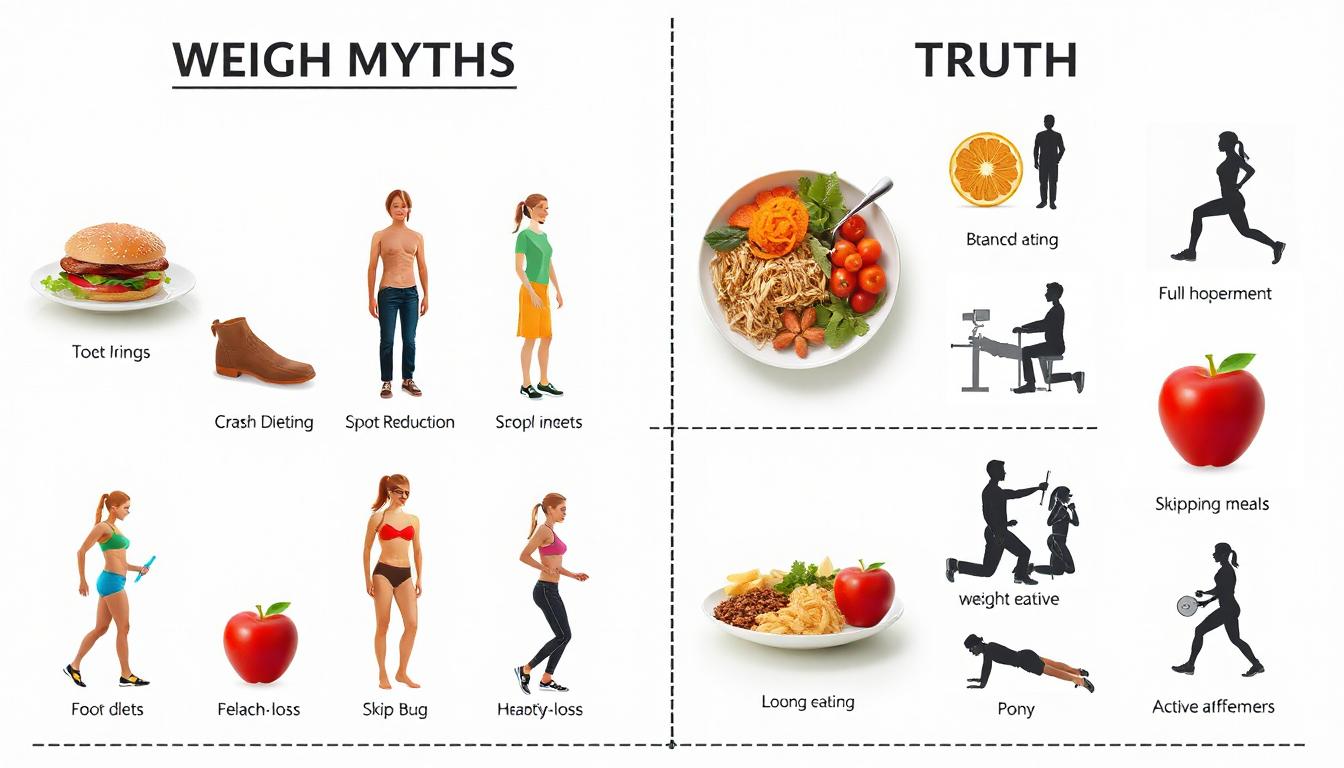Understanding Obesity and Weight Loss
Obesity is a widespread health concern that affects millions worldwide. Defined as excessive body fat that poses health risks, obesity increases the likelihood of developing conditions such as heart disease, diabetes, and high blood pressure. While there are countless weight loss strategies promoted today, it’s crucial to separate facts from fiction to achieve long-term success. This article addresses common myths surrounding obesity and weight loss and reveals the truth behind them.
Myth 1: Crash Diets Are Effective for Long-Term Weight Loss
Crash diets promise rapid weight loss through extreme calorie restrictions. While these diets may result in temporary weight loss, they are not sustainable and often lead to nutrient deficiencies. Once normal eating habits resume, the lost weight tends to return, sometimes in greater amounts.
Truth: The best approach to weight loss involves gradual and sustainable changes, such as incorporating nutrient-dense foods, controlling portions, and engaging in regular physical activity. Long-term success comes from balanced eating habits rather than extreme dieting.
Myth 2: Spot Reduction Exercises Eliminate Fat in Specific Areas
Many believe that performing targeted exercises, such as crunches for abdominal fat or squats for thighs, can lead to fat loss in specific areas. However, fat loss does not work this way.
Truth: The body burns fat holistically, not in isolated regions. Engaging in a combination of cardiovascular exercise, strength training, and a healthy diet leads to overall fat loss. Instead of focusing on spot reduction, aim for full-body workouts that promote fat burning and muscle strengthening.
Myth 3: Skipping Meals is an Effective Way to Lose Weight
Some individuals think that skipping meals, such as breakfast or dinner, can help reduce calorie intake and promote weight loss.
Truth: Skipping meals often leads to increased hunger, making individuals more likely to overeat later in the day. Additionally, it can slow metabolism, making weight loss more difficult. Instead, consuming balanced meals with the right portions of proteins, healthy fats, and fiber helps regulate metabolism and support weight management.
Myth 4: All Calories Are the Same
A common misconception is that weight loss depends solely on the number of calories consumed versus burned, regardless of the food source.
Truth: While calorie balance plays a role in weight management, not all calories have the same impact on the body. Nutrient-dense foods, such as lean proteins, whole grains, and vegetables, provide essential vitamins and keep the body full longer. On the other hand, processed foods high in sugar and unhealthy fats lead to energy crashes and increased cravings. Prioritizing quality calories ensures sustainable weight loss and overall health.
Myth 5: Genetics Determine Weight and Weight Loss Ability
Many believe that genetics entirely dictate a person’s weight and ability to lose excess fat.
Truth: While genetics can influence metabolism, body composition, and fat distribution, lifestyle choices have a greater impact on weight. Regular physical activity, balanced nutrition, and healthy habits play crucial roles in achieving and maintaining a healthy weight. Anyone can make progress by adopting a consistent and structured approach to health and fitness.
Myth 6: Weight Loss Supplements Are a Quick Fix
The weight loss industry markets various supplements that claim to burn fat effortlessly without the need for diet or exercise.
Truth: Most weight loss supplements lack scientific backing and can have adverse effects on health. The most effective and sustainable way to lose weight is through a combination of healthy eating and exercise. Before taking any supplements, consulting a healthcare professional is essential to ensure safety and efficacy.
Conclusion
Losing weight and maintaining a healthy lifestyle requires an informed approach based on scientific evidence rather than myths. Sustainable weight loss is achieved through balanced nutrition, regular exercise, proper hydration, and mindful eating habits. By debunking common misconceptions, individuals can take control of their health and make choices that lead to long-term success. Remember, lasting change comes from consistency and commitment to healthier habits.


